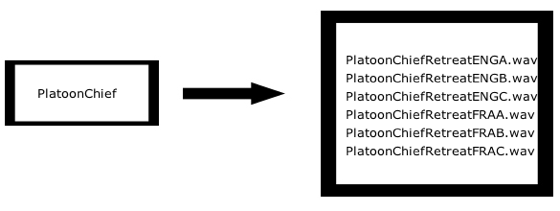George Spanos has published a new article on his website Game Sound Design, talking about the importance of video games localization and his role in game audio production.
Video game localization is the process whereby a game’s primary language is translated into other languages in order to accommodate foreign speaking gamers. Many video
game publishers require their titles to be localized for a host of major markets. Localization is a very big deal to publishers and the bottom line considering that sometimes up to 50% of a AAA title’s sales can be outside of North America.Another important facet of properly localized audio is to consider the linguistic differences of each region that the game is to be sold in. For example, quite often there will be a so called “North American Spanish” SKU (Stock Keeping Unit, also known as the specific packaged localized copy of the game on disc) as well as a “Spanish” SKU that will be sold mainly in Spanish speaking countries outside of North America such as Spain.
Additionally, games will sometimes have a few localized versions on one disc. In Canada for example, you’ll find the English as well as French versions of the game on one disc.
In the United States quite often English as well as North American Spanish will be on one disc. Generally though, English will be supplied on every foreign version of the game (assuming it is a North American title).
One popular term that has come to be known simply by its shortened form is EFIGS. EFIGS is an acronym for English French Italian German Spanish. Most games that are to be localized will be localized in these languages first and foremost. Occasionally Chinese and Japanese (as well as sub-variations of these languages like Mandarin) will also be included but generally these five languages are the most common.

Trivial and superficial
Really interesting read. Thanks for this.
yes, i’d like more info about audio for games, please!!
Thanks to all of you, I’m glad you enjoy the site :)
Interesting article. I am working for the game localization industry as well (as a French proofreader) but we focus mainly on text translations.
When we have some voice acting to do, we rather outsource it, so it was quite instructive to read a bit about sound/voices in the game localization process!
So basically what the article is saying that the game disc will have both languages on it, meaning the game can be played hearing either, or? That’ll be cool, then people will be able to play them without having to guess everything. Cool article! Thanks for a good read.